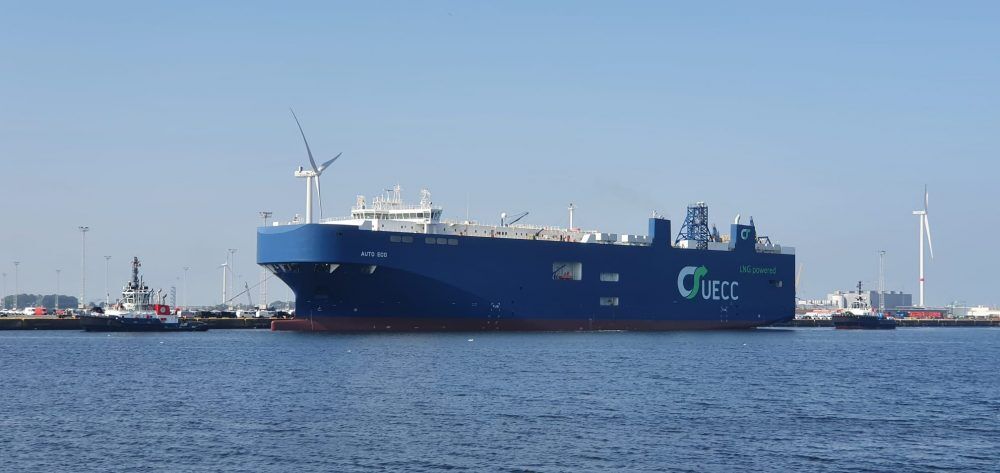
UECC has made big strides in cutting the carbon intensity of its vessels by taking a proactive approach to fleet renewal and experimenting with alternative fuels – but still sees a lack of market understanding of the long-term value of green logistics.
“Money still talks loudest in the shipping industry and unfortunately the freight rate remains the overriding factor for many of the car manufacturers when selecting a cargo carrier, regardless of the environmental footprint of the logistics solutions,” says UECC chief executive Glenn Edvardsen.
The European shortsea ro-ro car carrier has led the way in sustainable fleet operations after bringing onto the water the world’s first dual-fuel LNG pure car and truck carriers (PCTCs) five years ago and is now reaping the fruits of its efforts in significantly reduced emissions.
These two vessels, Auto Eco and Auto Energy, are already compliant with the IMO’s goal to cut carbon intensity from shipping by 40% within 2030 due to significant reductions in CO2 and NOx emissions, and effective elimination of sulphur oxide and particulate emissions.
By 2022, UECC will have 80% of its total lifting capacity meeting or exceeding the IMO target with delivery of three newbuild LNG battery hybrid PCTCs – the first of which is set to be delivered next month – to give it five eco-friendly ships out of a nine-vessel owned fleet, with an additional 10 chartered vessels.
UECC was a first-mover in building dual-fuel LNG car carriers when it ordered the pair in 2014 and LNG-fuelled vessels today mostly account for nearly 12% of all newbuild orders, up from 6% in 2019, according to DNV.
“We never saw this as a risk but rather a great opportunity to make a difference and reduce GHG emissions,” Edvardsen says.
“We are constantly evaluating alternative fuels and technologies out there and, rather than waiting for the perfect solution, have taken the lead with LNG as it is the best available fuel option at present. But that doesn’t preclude using other greener fuels in future and our newbuilds are ready for these with dual-fuel engines,” Edvardsen says.
He says though that more government initiatives are needed to promote infrastructure for alternative fuels, such as that by the Netherlands to effectively subsidise expensive biofuel for Autosky.
Ultimately though he says customers must also take their environmental responsibility seriously and “walk the talk” by accepting a premium for green logistics – or pay a higher price farther down the road due to reputational risk in a greener world.
“Tackling climate change is too big a challenge for one organisation to fix alone. Radical carbon reduction throughout supply chains is an absolute necessity,” he says.
“Only a few far-sighted customers have understood the need for green logistics amid growing pressure from regulators, consumers and finance institutions that will change the market playing field in future.”

